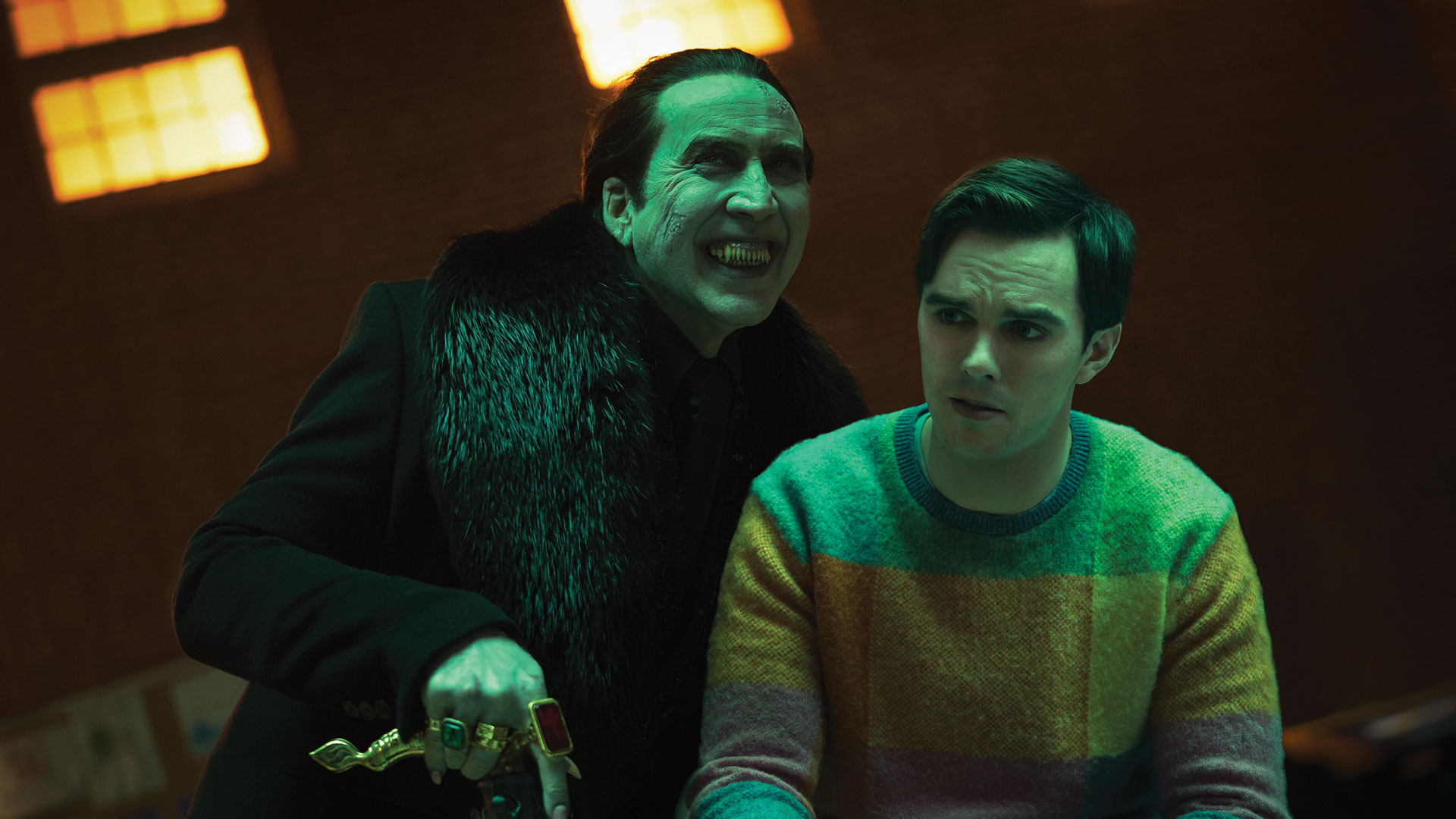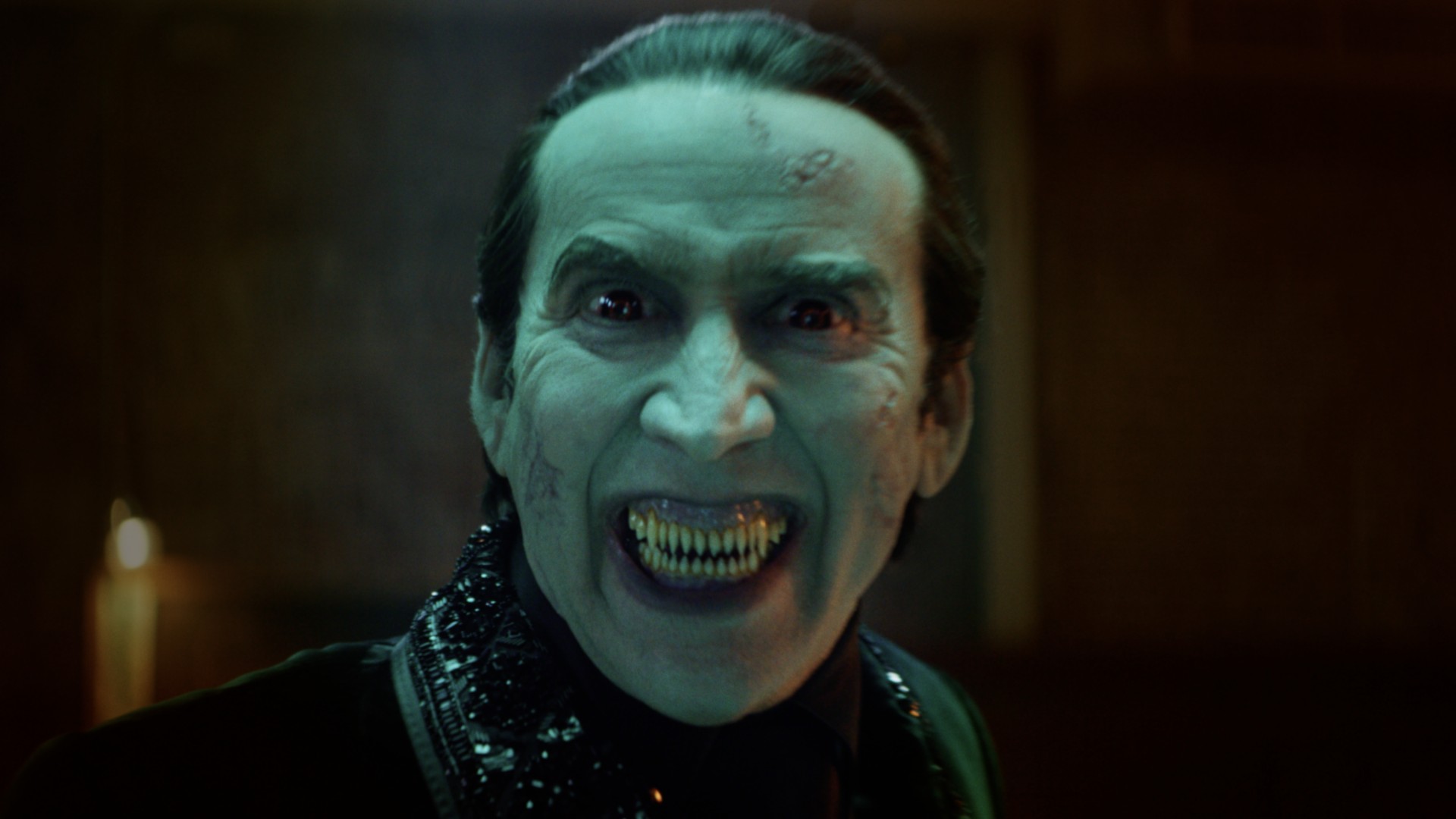Renfield is a surprising healing commentary on surviving narcissistic abuse
The film makes a clever commentary on surviving narcissistic abuse

Every now and then I see a movie that combines several of my niche interests and make the joke that it was made specifically for me. When behind-the-scenes photos of Nicolas Cage donning a velvet suit and a widow’s peak reminiscent of Christopher Lee’s 1958 Dracula hit the internet last year, I couldn’t believe my eyes. When I read that Cage planned to channel David Bowie in his portrayal of the famous count, I screamed. What I wasn’t prepared for, however, was how niche Renfield would get on a different, deeper level. I walked in as a horror fan (and Nicolas Cage enthusiast) who loves a good genre film, and walked out feeling healed and validated as a survivor of narcissistic abuse.
After viewing the trailer, I assumed the narcissist support group that Renfield attends – where he speaks at length about his boss – would serve as nothing more than comedic relief. It's a funny concept: Renfield, servant of and assistant to the undead Prince of Darkness, realizes he's in an extremely toxic give-and-take relationship that yields him little-to-no benefit. In the 1931 black-and-white film, we meet Renfield (played then by Dwight Frye), a solicitor who arrives at Dracula's (Bela Lugosi) castle. Renfield is immediately hypnotized by the Count, and it isn't long before he becomes his familiar and does his bidding. The 2023 film smartly recreates scenes from the original, subbing in Cage for Lugosi and Nicolas Hoult for Frye, in order to explain how our hero ended up in a 91-year-long abusive relationship.
Some of the most serious, darkest horror films are allegories for trauma and mental illness – i.e. Daniel Isn't Real, The Babadook, Pet Sematary – but one doesn't expect to find such an allegory in a lighthearted horror comedy. However, at the core of Chris McKay's Renfield, at the very heart of the film, is a terribly important message: you too deserve your own life, and you don't have to live for other people.

Narcissists prey on individuals who feel as if they are lacking something in their life, and in turn promise to give them some kind of purpose. The victim devotes their time and energy to appeasing them, all for some kind of bare minimum praise or attention. The narcissist uses fear to keep their victim around, often repeating that they should be grateful, that they are nothing without them. It becomes a vicious, relentless cycle of misery – and, in my personal experience, is neverending. Serving Dracula for 91 years? That makes perfect sense to me. Once the narcissist rewires your whole life so that your identity revolves around catering to their needs and only their needs, you lose your sense of self. You don't know who you are anymore.
"This is codependency 101," Mark, leader of the support group says to Renfield. "A narcissist will take full advantage of a codependent's low self-esteem. But you're the one with the real power. And all you have to do is take it back." Mark tells him to focus on his needs, something he hasn't "thought about in years."
And we don't just see Renfield struggle: we encounter several, everyday people (who don't have supernatural powers that tether them to the undead), that are trapped in their own toxic relationships. One woman shares that her abuser made her feel special and important in the beginning, before he began treating her so poorly. We see Awkwafina's Rebecca Quincy grapple with the grief of losing her father and the constant gaslighting of her male superiors – who use the aforementioned grief to make her feel small and keep her in her place. "I am enough," Renfield repeats aloud, first in group therapy and then, courageously, to Dracula's face. "I deserve happiness. I am grateful for all that I am, and I take pride in who I am today."

At the end of the film, everyone conquers – and this is something that doesn't always happen in real life. This is what makes the film so important: the fact that I, a repeat survivor of narcissistic abuse, could walk out of the theater feeling empowered, feeling strong, and being reminded that I am enough, and that I do deserve happiness. The fact that Renfield wins, Rebecca wins, and we even see two of the women from the support group feel alive, happy, and carefree for what might be the first time in their lives. The fact that someone else stuck in a narcissistic relationship might sit down to watch this movie and feel encouraged to reach out, ask for help, or find a support system of their own.
Bringing all the latest movie news, features, and reviews to your inbox
Renfield is more than just the 'Nicolas Cage Dracula movie,' it has the power to change lives. Sure you'll laugh, you'll jump, you'll scream, but you'll also be reminded that you are enough. You can be anyone or anything you want to be. And I think that's the true beauty of a good film: the allegory, the moral, the true message is at the core – it's not fed to us directly – and it's up to the viewer to take what they need from it. You might leave the theater deciding to wear more velvet, get your neck tattooed like Ben Schwartz's Teddy Lobo, or move to New Orleans – or, you might walk out into the parking lot feeling alive for the first time in a while.
Renfield is in theaters now. For more, check out our ranking of the best Nicolas Cage movies.

Lauren Milici is a Senior Entertainment Writer for GamesRadar+ currently based in the Midwest. She previously reported on breaking news for The Independent's Indy100 and created TV and film listicles for Ranker. Her work has been published in Fandom, Nerdist, Paste Magazine, Vulture, PopSugar, Fangoria, and more.


